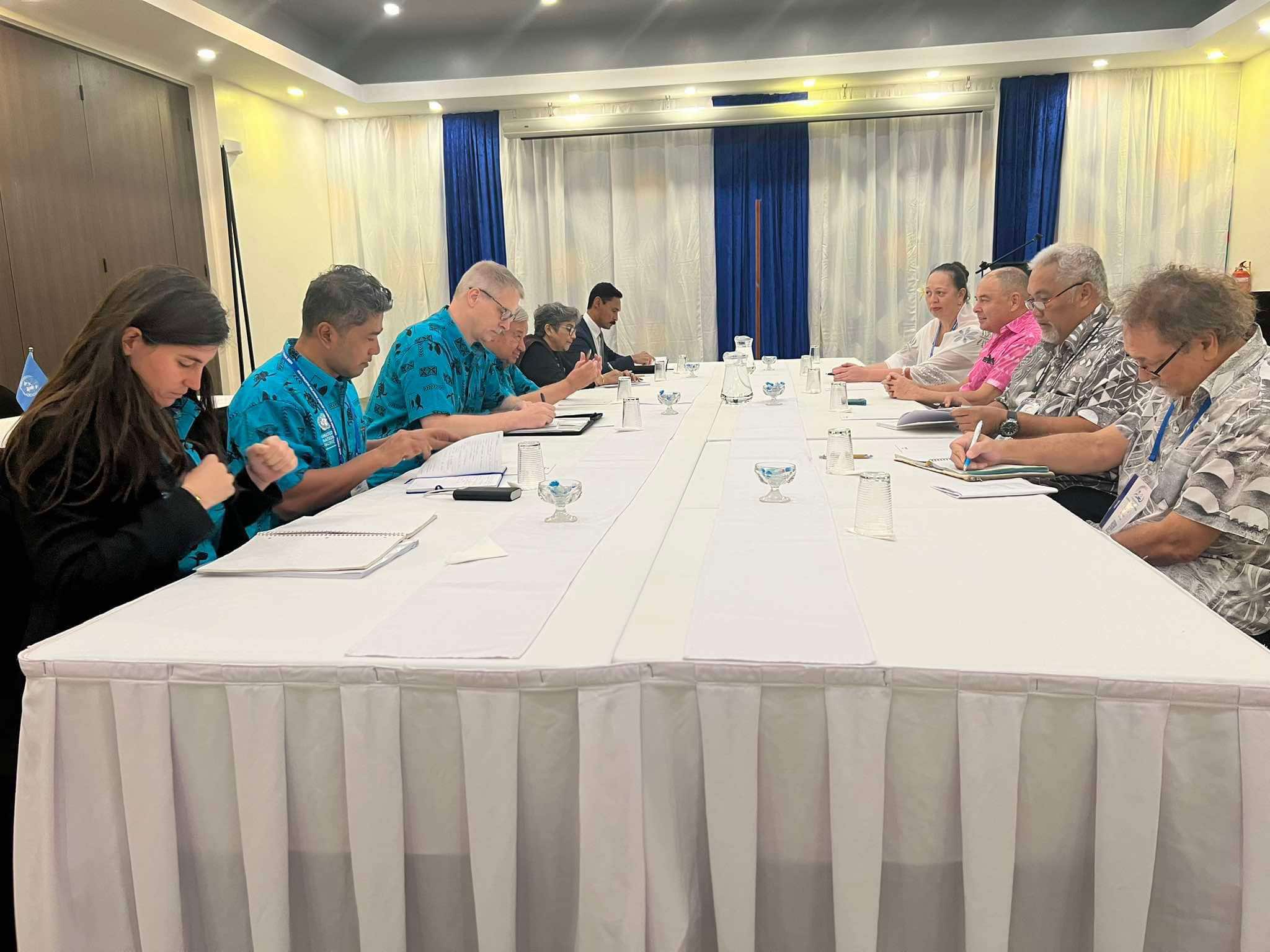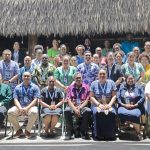Cook Islands Prime Minister and former Forum Chair Mark Brown has called for transformational changes to achieve a resilient Pacific, urging Pacific leaders and partners to go beyond incremental solutions and embrace bold reforms to address key regional challenges outlined in the 2050 Strategy.
Cook Islands Prime Minister Mark Brown laid out his vision for achieving a resilient Pacific, emphasising that small, incremental changes won’t be enough.
“The solutions that we have outlined in our communique can’t just be incremental—they need to be transformational to have the impact and effect we want,” Brown said.
“If there is a need to change the way that our organisation exists, then we must not be afraid to change. To make those changes if they’re going to be transformational, rather than just changing around the edges.”
Brown pointed to the ongoing Review of the Regional Architecture (RRA) as a critical opportunity to reshape the Pacific’s governance framework.
He highlighted that key issues like health and education have been brought to the forefront under the current Forum chairmanship.
“For the first time, we might have a generation that will die before their parents due to the onset of non-communicable diseases. We need to transform the way we approach health and prevention to make a real difference,” Brown warned.
Brown also addressed the urgent need for transformational change in climate action, criticising the traditional approach of incremental support and conditional financing.
“Pacific leaders have set an ambitious target of US$1.5 billion for the Pacific Resilience Facility—this isn’t just a number, it’s a necessary investment,” he said. “In the global context, it’s modest, but it’s what we need to operationalise true resilience in our region.”
On the topic of debt, Brown didn’t mince words. He called for a “hard look” at debt restructuring and even debt forgiveness, which he noted is often seen as dirty word among multilateral financial institutions.
“Countries hit by natural disasters are being forced to rebuild through borrowing, which is causing debt distress. If you really want to make a difference, you have to change the rules—and they have to be transformational,” he stressed.
The Prime Minister also discussed the Pacific’s potential role in regional peace and security, advocating for collaboration over competition.
“The Pacific, as a bloc of 18 members, has the opportunity to play a strong role in peace and security. We’ve always championed regional collaboration and support, not competition. It’s time we leverage that,” Brown said.
Brown highlighted the fisheries sector as another area ripe for transformation, referencing the East New Britain initiative.
“We need to rethink how we manage and benefit from our fisheries. The current approach needs to change if we’re to maximise the value of what’s taken out of our oceans.”
Reflecting on the broader economic landscape, Brown noted the compounded challenges Pacific nations face.
“We’ve just emerged from COVID, only to be hit by increased living costs and inflation. Every step forward seems to be matched by a step back. That’s why transformative action is not just necessary—it’s urgent.”
Forum Chair and Tongan Prime Minister, Hu’akavameiliku Siaosi Sovaleni reiterated Brown’s call for resources to back transformative changes.
“A resilient Pasifiki will need resources. That’s why we’ve endorsed regional funding facilities like the Pacific Resilience Facility and the Blue Pacific Prosperity Fund,” Sovaleni said.
He praised contributions like the AUD$15 million (US$10 million) from the Great Barrier Reef Foundation and highlighted Nauru’s commitment of AUD$1 million(US$672,000) despite its own challenges.
“Even Nauru, facing severe climate impacts, is contributing to the PRF. It’s this spirit of contribution and collaboration we need from all partners, even if there are reservations— we can work through them,” said PM Sovaleni.













